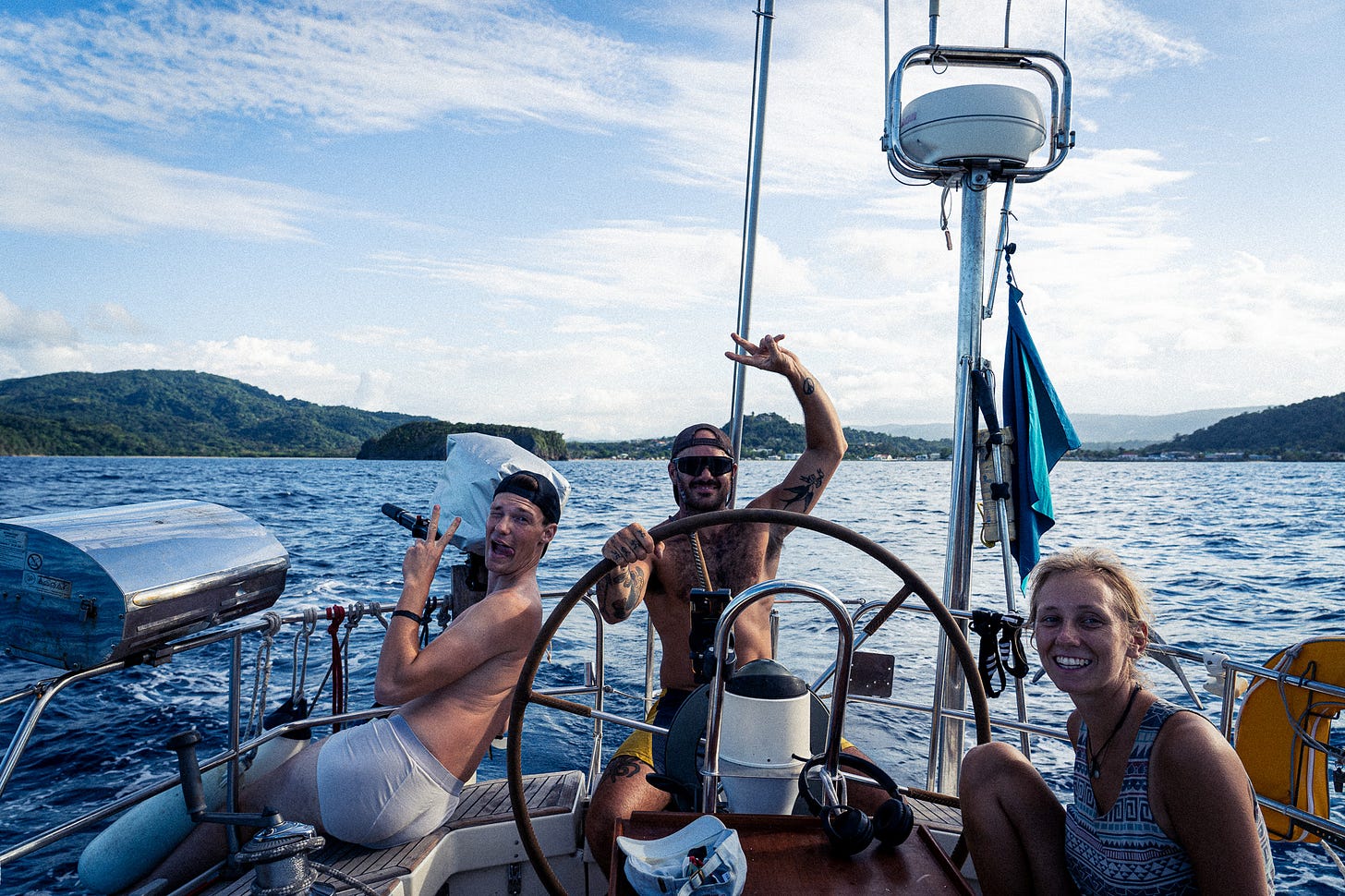How to practice gratitude to yourself for pushing past the comfort zone
Sailing my boat from Barcelona to Mexico in three months is probably the hardest mental challenge I've put myself through. And I am so grateful for it.
The men at Isla Beata didn’t want us to leave, but we were in a rush to reach Mexico by early March. With patchy winds, we were limited in terms of deciding when to set sail. From the Dominican Republic, there are about 900 nautical miles to Isla Mujeres, or six days of sailing. If we waited until the morning, we would lose a day of going by sail, as th…



